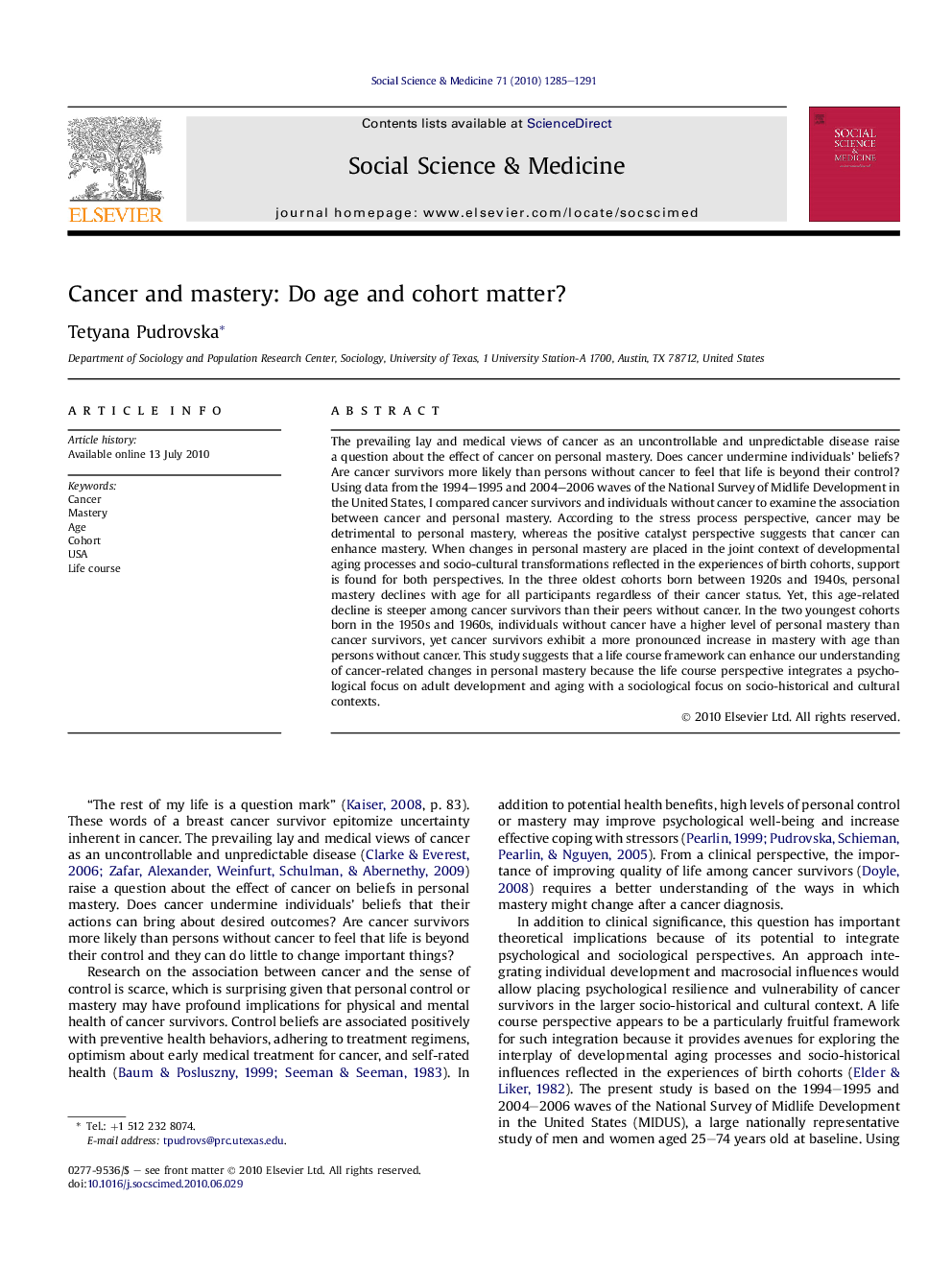| Article ID | Journal | Published Year | Pages | File Type |
|---|---|---|---|---|
| 952965 | Social Science & Medicine | 2010 | 7 Pages |
The prevailing lay and medical views of cancer as an uncontrollable and unpredictable disease raise a question about the effect of cancer on personal mastery. Does cancer undermine individuals’ beliefs? Are cancer survivors more likely than persons without cancer to feel that life is beyond their control? Using data from the 1994–1995 and 2004–2006 waves of the National Survey of Midlife Development in the United States, I compared cancer survivors and individuals without cancer to examine the association between cancer and personal mastery. According to the stress process perspective, cancer may be detrimental to personal mastery, whereas the positive catalyst perspective suggests that cancer can enhance mastery. When changes in personal mastery are placed in the joint context of developmental aging processes and socio-cultural transformations reflected in the experiences of birth cohorts, support is found for both perspectives. In the three oldest cohorts born between 1920s and 1940s, personal mastery declines with age for all participants regardless of their cancer status. Yet, this age-related decline is steeper among cancer survivors than their peers without cancer. In the two youngest cohorts born in the 1950s and 1960s, individuals without cancer have a higher level of personal mastery than cancer survivors, yet cancer survivors exhibit a more pronounced increase in mastery with age than persons without cancer. This study suggests that a life course framework can enhance our understanding of cancer-related changes in personal mastery because the life course perspective integrates a psychological focus on adult development and aging with a sociological focus on socio-historical and cultural contexts.
